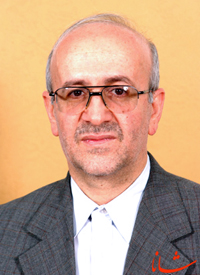Dr. Hassan Sobhani, faculty member of Faculty of Economics of Tehran University, added that Iran is currently producing 44 million liters gasoline per day, but in view of average daily consumption, which amounted to 80 million liters last year, the country should import 36 million liters gasoline per day.
Addressing a conference on increasing gasoline price at Faculty of Economics of Allameh Tabatabaei University, he stated that gasoline imports in the current manner would cost the country 5 billion dollars and, therefore, the trend cannot be continued.
The academician stated that there are two solutions to the problem; that is, increasing price and rationing.
The MP stated that excessive increase in fuel price will affect people’s livelihood, increase inflation rate, and have social and political consequences.
“A method which has nothing to do with price is fuel rationing, which will reduce domestic gasoline consumption…. However, it may lead to the establishment of a black market, which cannot be very serious,” he opined.
The official stated that rationing will save 10 billion dollars in 2-3 years and the money can be spent on developing public transportation fleet.
Meanwhile, an energy expert, Gholamhossein Hassantash, stated that the gasoline problem is also true about other energy carriers.
“If our refineries could have met domestic needs, could we have continued to consume as much gasoline? Therefore, the problem should not be approached via temporary policies,” he said.
The expert noted that other problems are also affecting gasoline crisis, adding, “For example, average fuel consumption by cars in the world is 6 liters per 100 km, but the figure is 20 liters per 100 km for Iran.”
Mentioning international gasoline price rise, he said, “Out of 100 percent of crude oil that is consumed in the world, 70 percent is used by the transportation sector.”
Hassantash admitted that international increase in fuel price will also affect the Middle East and, as a result, Iran will not be able to import its needed 16 million liters gasoline through 2.5 billion dollars that has been allocated to the purpose.
He noted that price of energy carriers are interrelated throughout the world and gasoline problem will also be faced for diesel.
Hassantash noted that a decision-making council like High Energy Council is needed to tackle the fuel crisis.
Dr. Farshad Mo’meni also stated that Iran needs a coherent strategy for energy sector and temporary solutions will get nowhere.
Criticizing the country’s energy policies in the past 10 years, he added that it should be made clear that through which approaches investments in energy sector have been carried out and why frequent crisis have hit the energy sector.


Your Comment